|
A cultural revival uniting communities and individuals. By Jessica Rath This article is somewhat different from my usual interviews: instead of talking with just one person, this time I’ll bring several voices together. The revival of the beautiful dances of Los Matachines de Abiquiú after about 80 years is a community effort which was made possible by many people working together, practicing together, exploring and performing together. The participants of such a project deserve to be heard. I first learned about the Matachines when I interviewed MariaElena Jaramillo, and she put me in touch with Maximiño Manzanares so I could learn more about the dances. We did a long interview which Antonio Salazar from Alcalde joined as well, and it was Maximiño who suggested that the additional co-participants in the revival should also be heard, and that they’d enjoy contributing to the article. And that made total sense. How did this revival happen? The last time Abiquiú had a Matachines Troupe and danced regularly was around 1946––almost 80 years ago,–– and then it stopped. Maximiño told me how this revival came to fruition. When one of Abiquiú’s elders, Jacobo (Jackie) Suazo passed away in 2023, his family asked Maximiño and their father David Manzanares to play the music at his funeral services. Jackie was one of the last Matachine dancers from Abiquiú. He left several beautiful paintings to document the Matachines back in the day, which, following his passing, re-sparked conversation about his and other community members’ participation, as well as and the tradition of the dances themselves. This planted a seed, Maximiño said. Later that year, one of Maximiño’s mentors, Soledad Garcia of El Guache––who has played the violin for Los Matachines de Alcalde for over 20 years––invited Maximiño to accompany her and begin learning the violin parts for Los Matachines of Alcalde. That year, Maximiño apprenticed Soledad on the violin for the two rosarios of that year’s Matachines in Alcalde. After the dancing, Soledad connected Maximiño and their Dad with Arsenio and Lily Rose Martinez, the Mayordomos of Los Matachines de Alcalde. This connection sparked conversations amongst Arsenio, Lily, Soledad, Davíd, and Maximiño about Abiquiú’s Matachines and what the possibilities might be to revive them. So, another seed was planted. Lily Rose Martínez A few days later, Maximiño and their Dad were invited to sing at the birthday celebration of Josephine “Josie” Valdez, an El Pueblo de Abiquiú Elder who had just turned 94. When Maximiño told her about playing the violin for the Matachines in Alcalde, she became so excited and shared: “Cuando teníanos Los Matachines en El Pueblo de Abiquiú, ¡yo era la Malinche! ¡Yo y la Helen [López]!” (“When we had Los Matachines in El Pueblo de Abiquiú, I was the Malinche! Me and Helen [López!]”) As fate would have it, Tía Josie and the late Tía Helen were also some of the last participants in Abiquiú’s Matachines back in the Forties. And, almost 80 years later, Tía Josie was one of the last living relatives from El Pueblo de Abiquiú who could still share these memories! The third seed! When Tía Josie learned of the potential for a revival of Abiquiú’s Matachines with the help of Alcalde, she exclaimed, “it would be so wonderful for it to come back!” and gave her blessing in support of the endeavor. Reflecting on these memories, Maximiño told me, “Tía Josie’s stories were especially profound in the revival of Los Matachines del Pueblo de Abiquiú. As she shared her memories, it felt that there was ancestral guidance and encouragement for the Matachines to come back to Abiquiú. Unfortunately, Tía Josie was not able to physically attend the Revival Dance, as she passed away in February of 2025, but one of her grandchildren Justin Valdez picked up and carried on her torch, becoming one of the inaugural Abiquiú Matachines for our Revival Dance!” Arsenio Martínez In 2024, Arsenio then invited Maximiño to learn and participate with Los Matachines de Alcalde again––this time, as one of the dancers. Throughout their apprenticeships in Alcalde, Maximiño learned that there were so many elements that must be woven together in order to bring forth Los Matachines. In addition to the worlds of dancing and music, every Matachín Dancer has to craft their corona (headpiece) and palma (one of the handpieces) and assemble everything else that belongs to their attire. Maximiño’s dedication to this process and, I’m sure, their understanding of the deep roots and connections of the dances to their ancestors, their culture and tradition, motivated Arsenio to entrust Maximiño with the role of the Abiquiú Matachines’ inaugural Mayordomo. They take the responsibilities which come with this role very seriously. MariaElena Jaramillo “Mano Arsenio told me that, throughout the revival process in Abiquiú, our Hermanos and Hermanas Matachines from Alcalde will be there to support us!” Maximiño is forever grateful for all the help and assistance they received from Alcalde’s community members who so generously gave of their time, knowledge, support, and care to the Revival. “We decided to realize the Revival Dance during Abiquiú’s 2025 Santa Rosa de Lima Feast Day. Abiquiú’s Matachines have traditionally danced in the wintertime for Christmas, but we talked about it and collectively decided that we should work with the opportunity of our summer Feast Day to build more long-term momentum in the community for people to participate and get interested,” Maximiño highlighted. “During the summer of 2025, we had eleven practices, each two hours or more, as well as two community attire-making gatherings, at the Parish Hall in Abiquiú,” Maximiño continued. “That's when we worked on the dance together. We were so deeply blessed to have: seven Matachine Dancers from Alcalde; Mano Arsenio and Mana Lily; as well as a current Malinche and Torito from Alcalde and their families help teach us the dance and support us at every step of the way. We ultimately had five new inaugural Matachines from Abiquiú! So, altogether, we were able to dance with twelve Matachines––in addition to the Malinche, Torito, Abuelos, and Músicos––for our Revival Dance for the Santa Rosa de Lima Feast Day!” The Revival participants were:
Further, the Revival Dance endeavor was sponsored in part by the Río Arriba County Lodger’s Tax. What’s the dance all about, what is the story of it, I wanted to know. "The overarching story that I have been told is that the dance reenacts what happened via Spanish colonization, specifically their enforcing of Catholicism on Indigenous peoples," Maximiño told me. "The Malinche is likened to La Malinche, a Nahua woman who acted as a translator for the Spanish conquistador Hernán Cortés, and the Monarca is Moctezuma. But each community who dances the Matachines has their own, intimate meanings, and even each dancer can have their own, personal interpretations. The Matachines themselves have been shaped by so much history, including Islamic rule in Spain, so the influences of Black Muslim cosmologies are also indelibly interwoven in these dances. While participating in the Revival of Los Matachines in El Pueblo de Abiquiú, I was reflecting on how our community has suffered due to colonization. Many of our community’s ancestors attended the Native American Boarding School in Santa Fe, and many of these ancestors and their families also participated in Los Matachines back in the day. We don't want to share these stories in any way that causes harm to or takes focus away from federally recognized Pueblos and other Native Nations. We just want to be true to what all of our history is. For this revival, we come from a place of respect, care, and reclamation. We want to keep the lifeways that have brought our community together alive." MariaElena Jaramillo 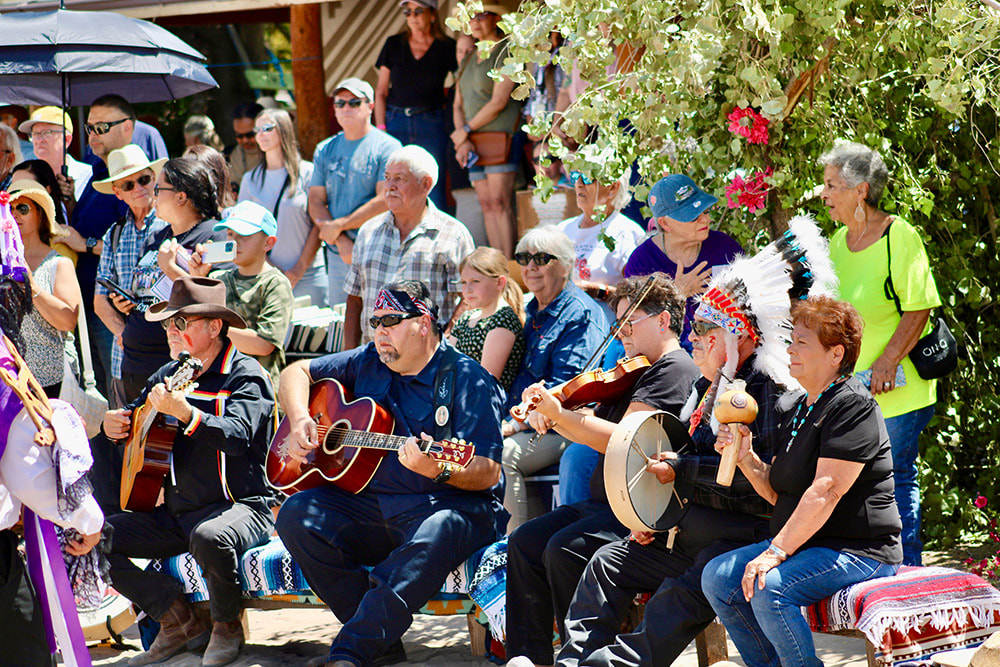 The Musicians of Los Matachines del Pueblo de Abiquiú, 2025 Revival Dance. From Left to Right: Davíd Manzanares (Drum & Guitar), Andrew Chacón (Guitar), Soledad García (Violin), Dexter Trujillo (Drum), and Carmen López (Guaje). Image Credit: Andie Manzanares & El Pueblo de Abiquiú Library & Cultural Center (PALCC). But, as Maximiño ardently emphasized, this is only their own, very personal, interpretation of the meaning of the dances. Even people who have participated for many years continue to discover a new significance, they told me, so it’s difficult to come up with a generalized description. “I cannot state in the article, ‘This is what the dance definitively means’, because I am only one participant in a whole lineage of dancers and musicians across so many communities and times, and I have only just begun my journey and experiences with Los Matachines. What I can speak about is the process of helping bring it back to Abiquiú, and what that means to me,” they added. By now Antonio Salazar, AJ for short, had joined us. He is one of the Alcalde dancers and was the official Alcalde Liaison for the Abiquiú Revival. As such, he helped ensure that all of his fellow Alcalde dancers would know when the weekly practices would take place. He wanted to dance ever since he was a child, he told me, but became involved only about a year ago, although both his grandfather and one of his uncles were dancers. He had joined the United States Army for almost 22 years and got injured in 2021 when he was on duty in the Middle East. He was hospitalized from July of 2021 until July of 2024. When he came back home to the United States, he started to work on the ranch that his grandfather had established in about 1941. Working on the ranch became physical therapy, but even more emotional therapy for AJ. He told me: “Here's a funny story: My name is Antonio, as was my grandfather's. On June 13 [the Day of San Antonio] of last year, 2024, I ran into Arsenio Martinez, Alcalde’s Mayordomo. I asked him, ‘Would I be too old to dance with the Matachines?’ ‘No’, he said, as long as you're able to dance.’ So I showed up, and that's when I met Maximiño and we started our initial practices. It's interesting how God brings people together in the most unexpected way. I got involved on the day of San Antonio, which is actually my grandfather's birthday. That's how I became involved, and I have pledged that I will do it until I can't do it anymore.” AJ performed in Abiquiú this summer, and he did great! “I'm still healing,” AJ continued. “But this is medicine for me. I got to meet wonderful people like Maximiño and their parents David and Andie, and all my other brothers and now sisters from Abiquiú. It's so important to preserve our culture. If you had told me 40 years ago that I'd be on a tractor on this ranch raking hay, and I’d be the Mayordomo of one of my community’s acequias, and that I'd be working here, I would've said, ‘No way, I'm going to college because I want to get out.’ But God has written this story and it brought us together. Cultures and societies and entire tribes have gone extinct or fallen by the wayside, and one of the first things that can lead to that extinction or death of a culture is the loss of our language. And, after the loss of our culture, the loss of our traditions comes next. So it's wonderful to be able to keep it alive. So we helped revive the Matachines in Abiquiú, and we're bound together for life now. It's so good to see the energy of young people. It's so wonderful to see the passion of preserving the language, the traditions, the dances, it's just amazing.” Lily Rose Martínez 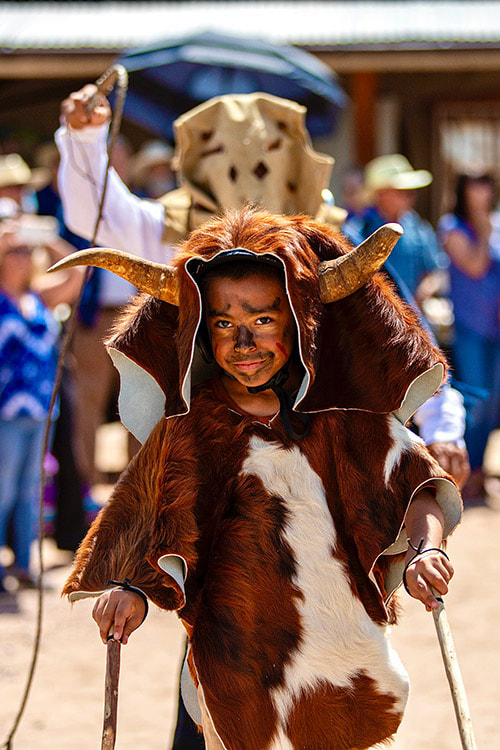 Trevin Archuleta, the 2025 Revival Torito of Los Matachines del Pueblo de Abiquiú, and, behind him, Arsenio Martínez, one of the Mayordomos of Los Matachines de Alcalde and one of the 2025 Revival Abuelos of Los Matachines del Pueblo de Abiquiú. Image Credit: Gustavo Martínez Contreras / Analco Studios. Our culture here in the United States is plagued by so much strife, so much polarity. When AJ stated that his involvement with the Matachine dances brings healing to him and into the community, I was touched. It is so desperately needed, and I imagine that such efforts contribute to the general wellbeing of our society. Maximiño mentioned that the Matachines intentionally dance for the whole world, and that intention reverberates far beyond El Pueblo de Abiquiú. Arsenio Martínez There will be another dance in the winter, but not for Christmas. Some of the folks who would be participating may be out of town on Christmas Eve and Christmas Day. Maximiño explained: “Los Matachines de Alcalde have been paving the runway for us. When we took up this Revival Dance together, they became interwoven with us, and us with them. They will always be there to back us up, and us them! They've given us the tools and support to say, ‘Now it's your responsibility as a community to keep on bringing other people in so that you can have more and more dancers for each of the roles, so that your community continues to absorb it and make it more and more their own each time. Our goal is to get as many people from El Pueblo de Abiquiú as possible to participate long-term, as this is a tradition for all of our community! It's been so beautiful to both witness and participate in this intercommunal and intergenerational endeavor coming to fruition. There's been such intentionality from everyone at each step. We are finalizing and will then communicate the date and time for our winter dance. We are so thrilled to dance again this December, and for all of the dances to come!” MariaElena Jaramillo Arsenio Martínez Maximiño continued: “How can we continue to support one another and uplift one another? There’s such an abundance of beautiful teachings and remembrances that came from these practices that are so nourishing. How can we keep building this momentum so that it can persist beyond our time and into the future generations? What other ways are there to revitalize and keep alive our community’s culture? What other traditional dances and songs from El Pueblo de Abiquiú can we collectively re-learn and re-share? And how do we go about that? What stories do we need to remember so they're not lost? We all have a beautiful and important part to play, and if we choose to meet the blessings that we’re given with respect, humility, integrity, recognition, and love, then we are reminded that these blessings aren't just for us, but for everyone around and beyond us. We can then share them and make them the best we can. That's when the magic happens!” MariaElena Jaramillo This sounds so inspiring, doesn’t it. The dances brought people together, everybody got very involved and gave their best. Everybody is working together. It reminds me that we are not isolated beings but are connected to everything, to other people, to nature, to animals, to trees, and everything in the universe. Our culture isolates people, and they feel threatened and are afraid. But this is just a misunderstanding, because we're all connected. Thank you, Maximiño, AJ, MariaElena, Lily, Arsenio, and everybody else involved with the Matachine dances, for reminding us.
0 Comments
Your comment will be posted after it is approved.
Leave a Reply. |
Submit your ideas for local feature articles
Profiles Gardening Recipes Observations Birding Essays Hiking AuthorsYou! Archives
October 2025
Categories
All
|
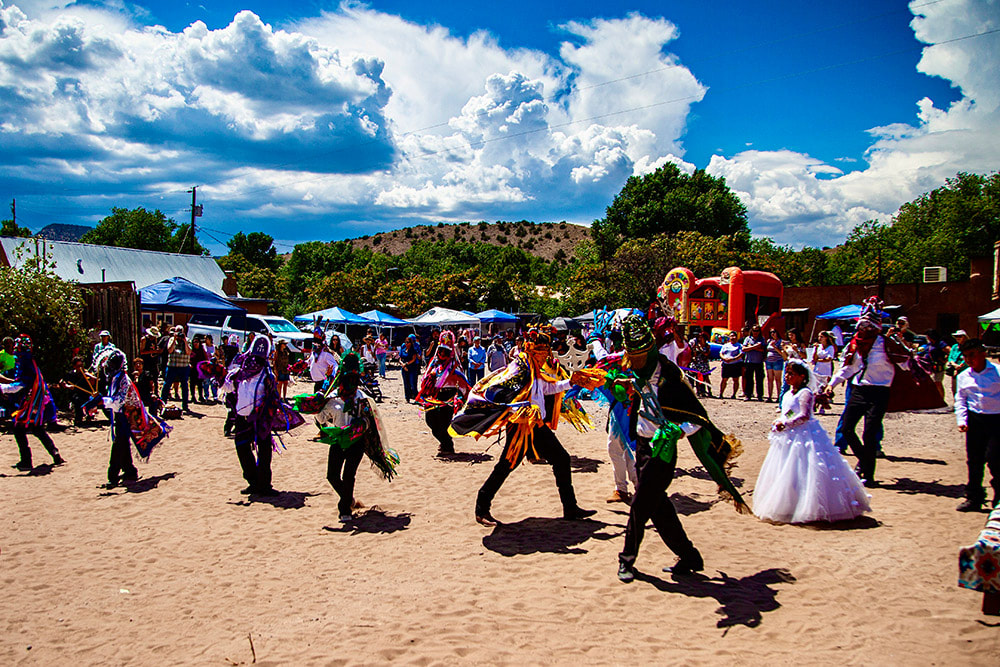
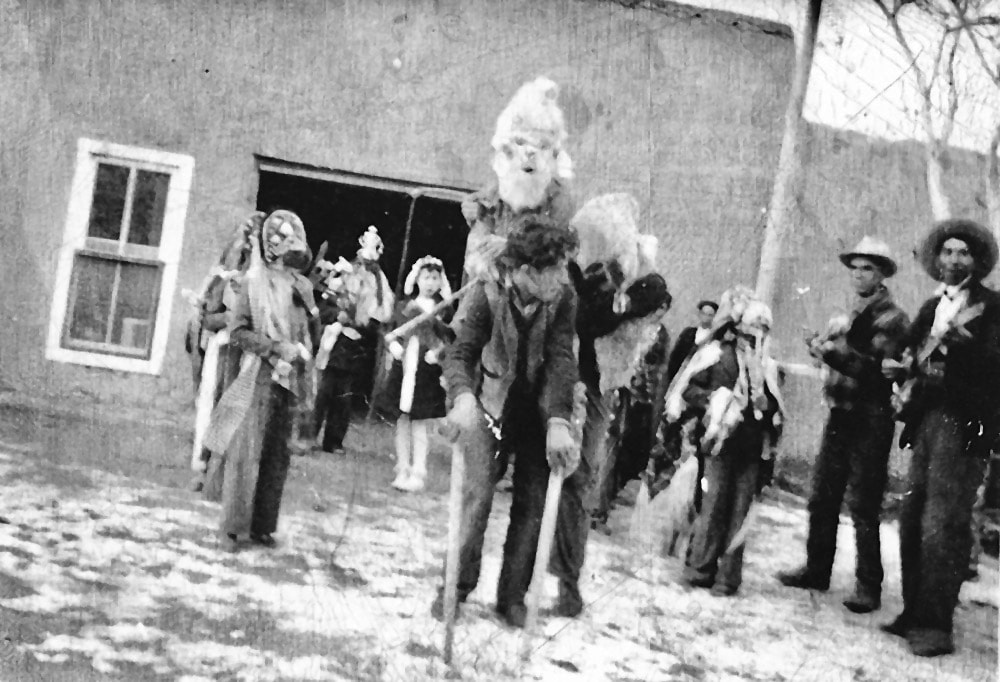
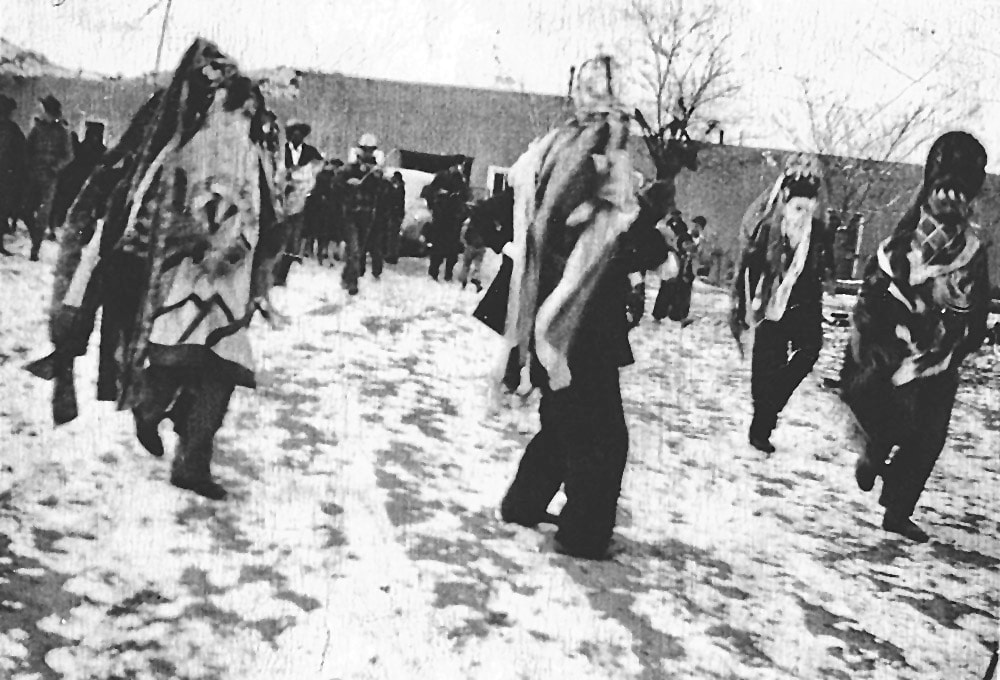
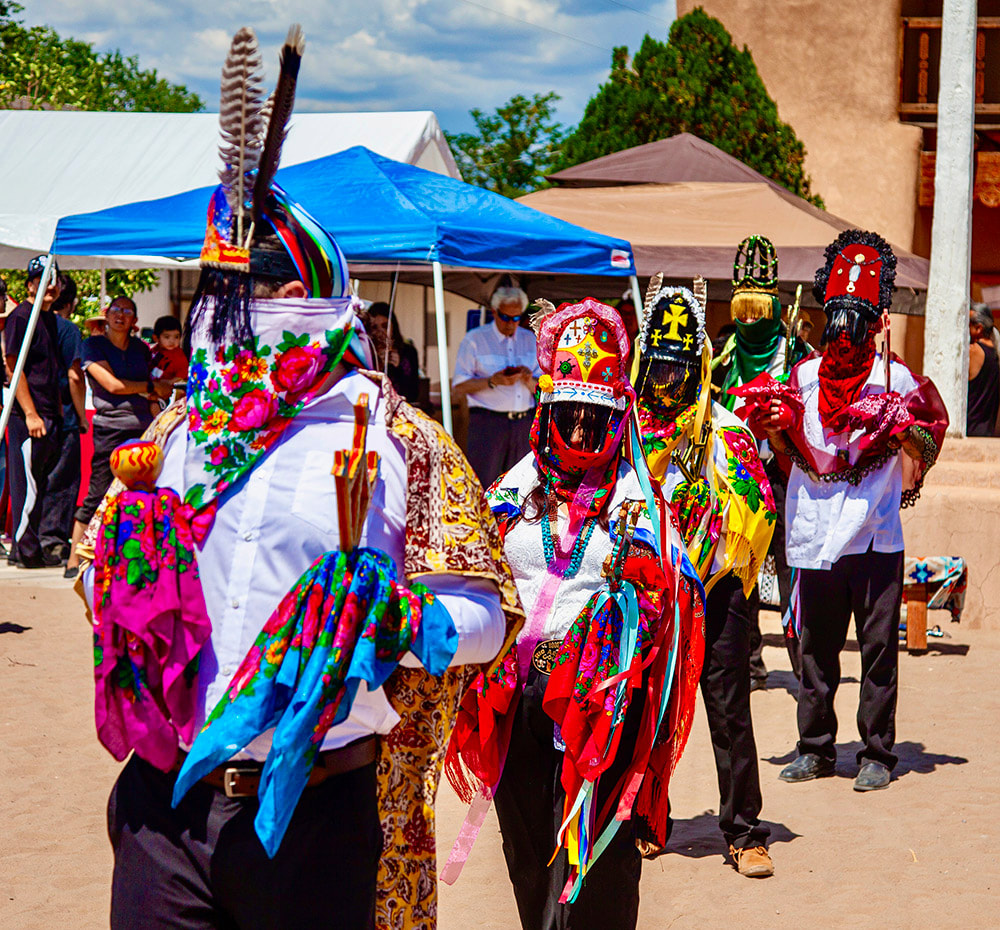
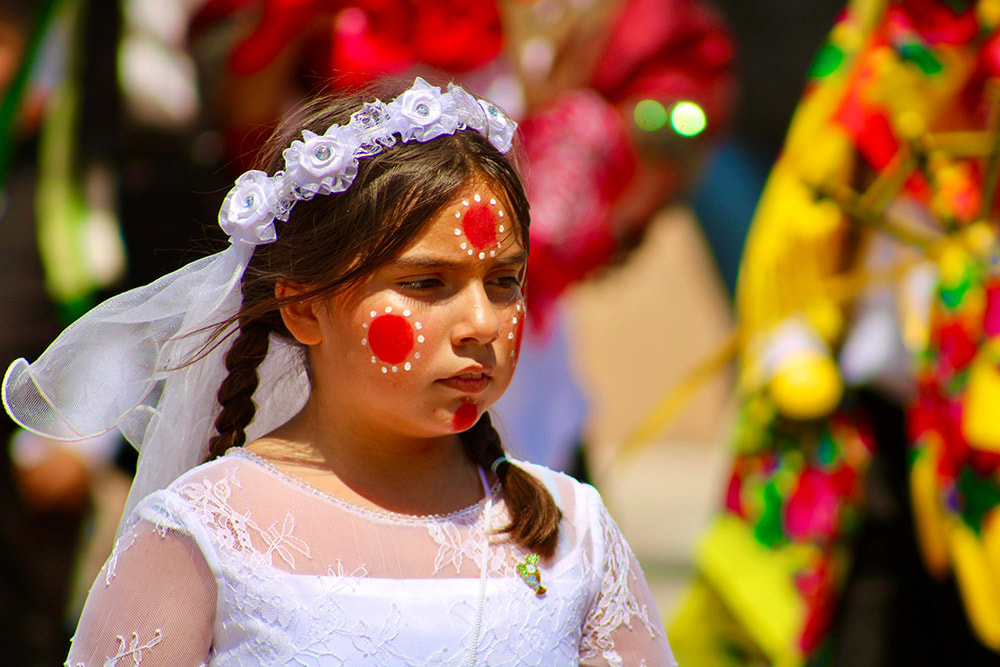
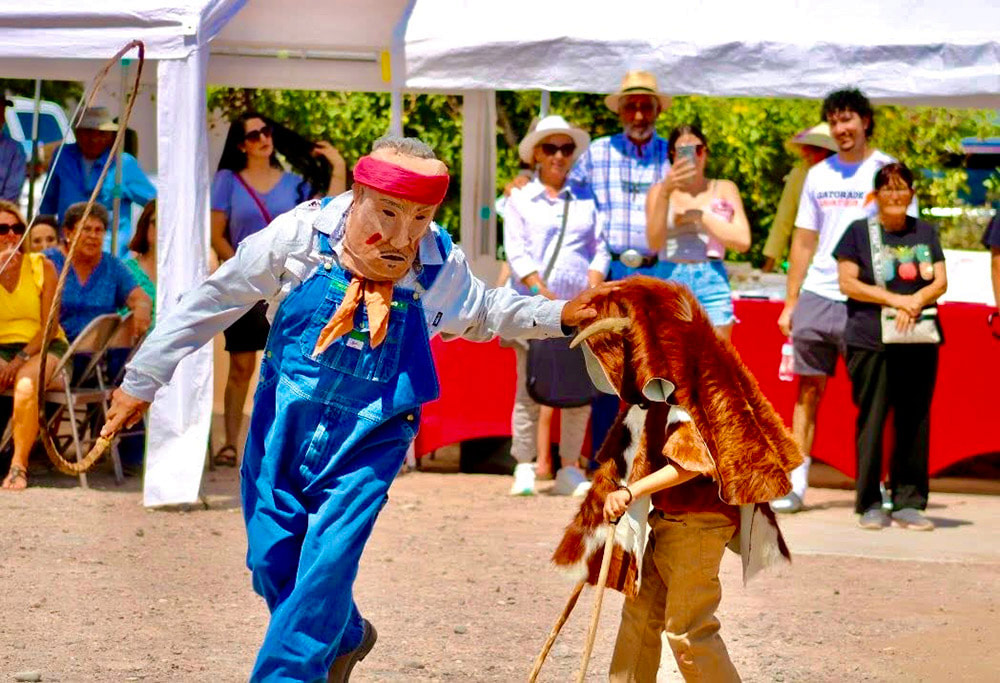
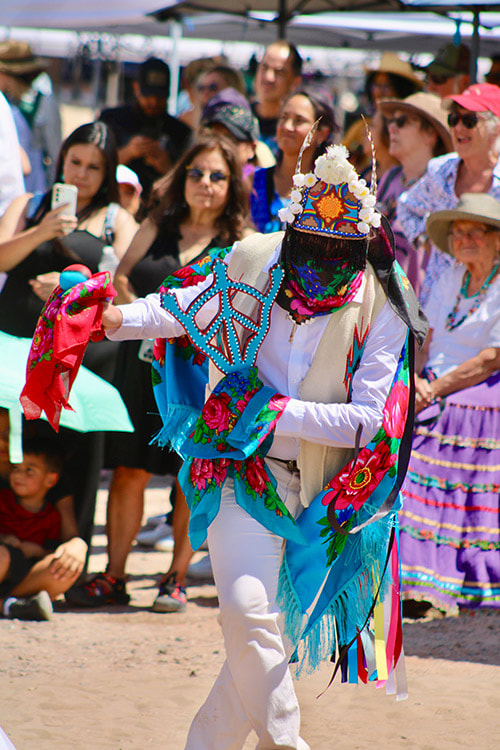
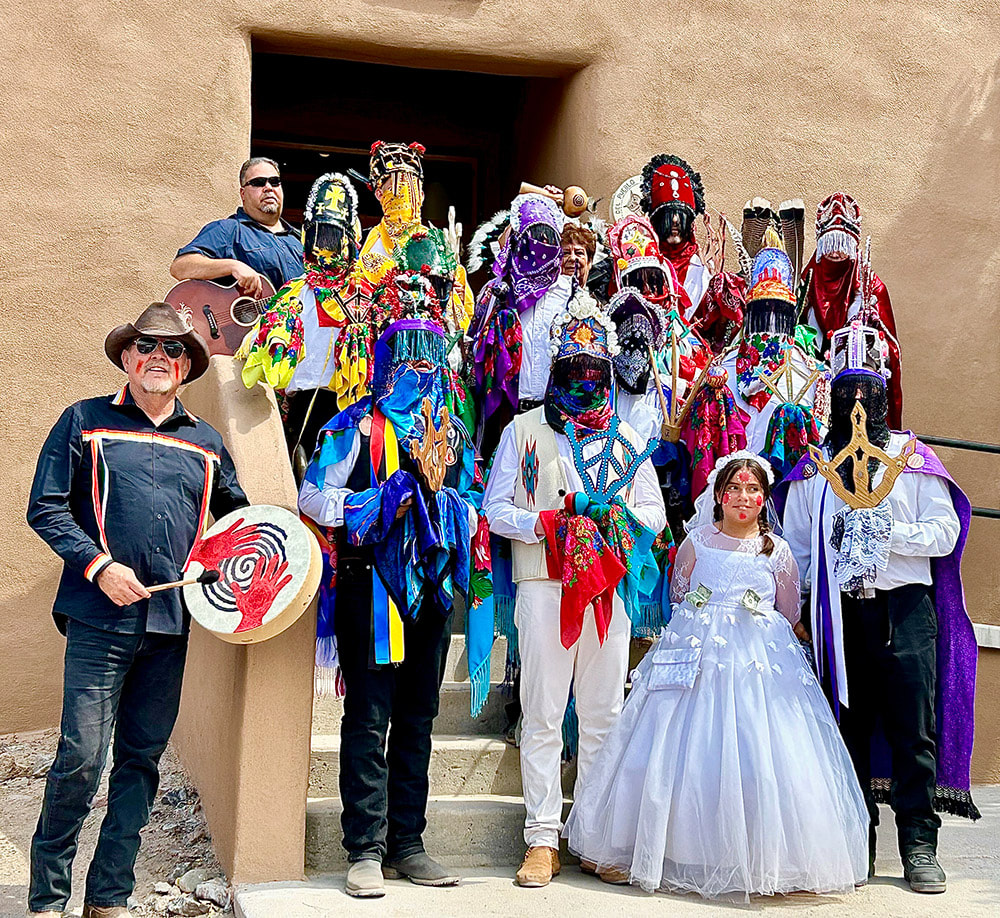
 RSS Feed
RSS Feed